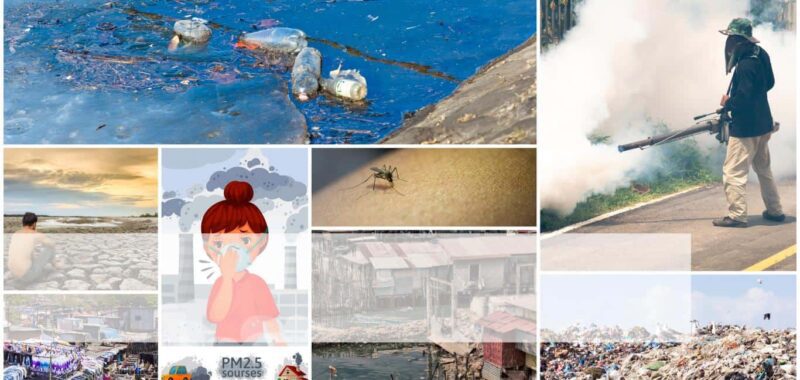The Earth Journalism Network, Internews’ program in support of environmental media, recently launched its latest special report exploring the links between climate change and health.
The in-depth reporting series stems from growing concern about not just the direct impacts on human health, but also the ripple effects climate change is having – on everything from the foods we eat to where we live and how we earn a living.
To be sure, climate change is altering the ecosystems we rely on to keep us healthy and nourished. Increasingly it’s also being linked to the increased incidence of diseases, such as dengue, as warmer temperatures expand the range of places the mosquitos that spread it can live. It’s probably no coincidence that 2019 was the second-hottest year on record and also the worst for dengue.
Many of the areas currently hit hardest by the effects of climate change, are ones struggling with economic inequality and overstretched, under-resourced health systems, preventing poor and vulnerable communities from receiving proper treatment.
To address these complex links, EJN put out a call last June for data-driven, investigative story proposals that would raise awareness about how environmental conditions affect human health, and what can be done about them.
That led to a dozen stories with more in the pipeline, including a 25-minute documentary out of India about the toll severe storms take on mental health and another about how mental health remains missing from climate change plans in the Philippines, where Supertyphoon Haiyan wiped out entire cities and towns in the Eastern Visayas.
A four-part series by grantee Aniruddha Ghosal explores how climate change is challenging the state of Odisha’s efforts to combat vector-borne diseases, while reporter Claire Baker-Munton looks at how a farmer in Cambodia harvesting bat feces as fertilizer may be helping to fight dengue fever. And in Indonesia, reporter Isnawati highlights how tidal floods increasingly inundating the north coast of central Java are having a disproportionate impact on women’s health. This follows earlier reporting from EJN’s Bay of Bengal project that revealed that salt water contamination is leading to higher blood pressure and increased incidences of pre-eclampsia in pregnant women.
Our Climate Change & Health series is the latest of four special reports we’re currently supporting. It’s our way of showcasing trends in climate and environmental change and the effects those changes have on the future of our planet. You can help support these efforts by sharing these stories with your networks or by making a donation. We’d also love to hear your feedback or ideas for future stories or series. Please drop us a note.
